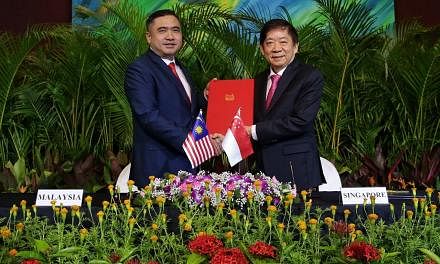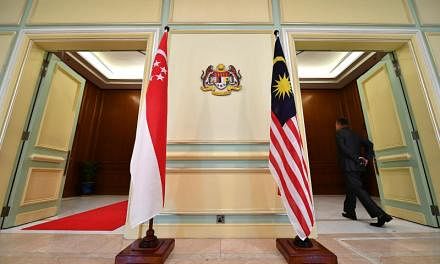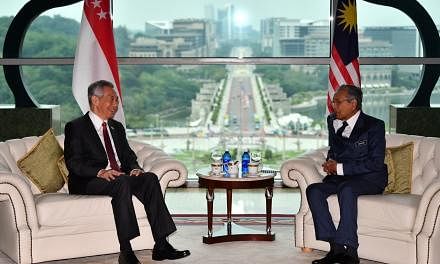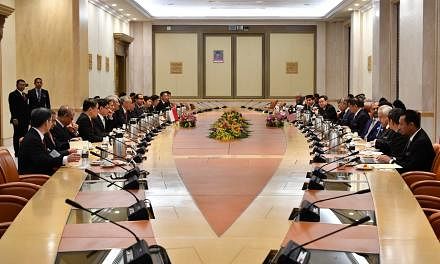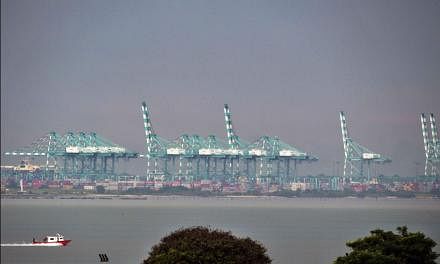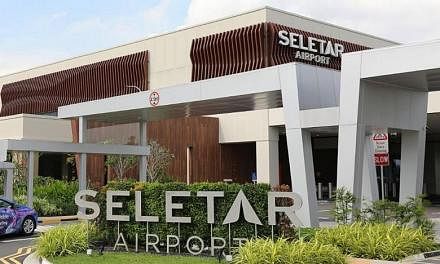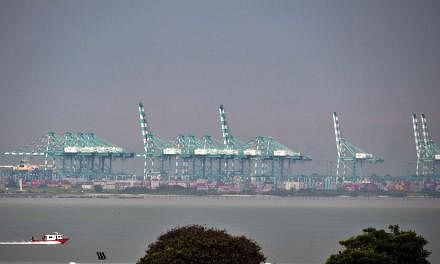SINGAPORE - Singapore takes "very seriously" the air traffic management responsibilities it has been entrusted with by the International Civil Aviation Organisation (ICAO), and will continue to invest in enhancing capabilities to ensure the highest standards of safety and efficiency.
Acting Transport Minister Vivian Balakrishnan stressed the point during the debate on the Transport Ministry's budget on Thursday (March 7), when he spoke about ongoing airspace issues between Singapore and its neighbours Malaysia and Indonesia.
Both countries are asking for a return of Malaysian and Indonesian airspace currently managed by Singapore air traffic controllers.
Dr Balakrishnan said: "Through these decades (since 1946), Singapore has been providing ATS (air traffic services) to the highest standards of safety and efficiency, in accordance with our responsibilities under international law, and ICAO's standards and practices."
ICAO is a United Nations body that oversees global commercial aviation.
In 2018, Singapore managed 740,000 flights in the Singapore Flight Information Region (FIR), about half of which landed at or departed from Changi Airport.
The other half comprised overflights, many of which were to and from other airports in the region.
Dr Balakrishnan said: "The region's aviation sector has benefited greatly from these arrangements. This has been a win-win arrangement for the region, our neighbours and us."
He added: "Members are aware that our closest neighbours, Malaysia and Indonesia, have expressed their desire to see changes to the airspace arrangements in our region.
"We are certainly willing to address their concerns. Singapore fully respects Malaysia's and Indonesia's sovereignty over their airspace."
At the same time, discussions on air navigation arrangements must fundamentally be based on technical and operational considerations, for the purpose of ensuring the safety and efficiency of civil aviation, he said.
"Any changes to these arrangements, if warranted, must be done properly, in accordance with the rules, requirements and decisions set out by ICAO.
"Any such changes must further enhance safety and efficiency, and benefit airspace users. Stakeholders such as airlines who use the airspace must also be consulted," Dr Balakrishnan said.
Amid negotiations and discussions, Singapore will continue to invest in technology so that the country remains the "safest, most reliable provider of air traffic services", he said.
Singapore has always recognised the edge that technology can bring, particularly in a highly technical field like air traffic services provision.
The Civil Aviation Authority of Singapore (CAAS) has, therefore, consistently invested significantly in its air traffic management capabilities over many decades, focusing on three critical aspects: machine, man and method.
Dr Balakrishnan pointed out that Singapore's air traffic management systems are one of the most advanced in the world and highly customised.
CAAS' air traffic controllers have been trained to a very high standard, and are internationally recognised to be highly proficient, and contribute extensively to setting global standards in ICAO and industry organisations, he added.
Finally, CAAS' air traffic management processes and operating procedures are advanced and innovative, while maintaining the highest safety standards.
Dr Balakrishnan also spoke about ongoing Singapore-Malaysia airspace discussions, which includes Seletar Airport.
The two countries are embroiled in a dispute over Singapore's introduction of an instrument landing system (ILS) at Seletar and Malaysia's subsequent decision to declare a restricted zone over Pasir Gudang for the purpose of military activities.
Malaysia claims that an ILS - which helps guide pilots during landing - would hamper the construction of tall buildings at Johor's Pasir Gudang, to the north of the airport.
Singapore has said repeatedly that this is not true, as the new landing system does not impose new height restrictions.
Dr Balakrishnan noted that, following Transport Minister Khaw Boon Wan's meeting with his Malaysian counterpart, Mr Anthony Loke, on Jan 23, both sides agreed to extend the mutual suspension of the ILS procedures and the restricted area over Pasir Gudang until March 31.
"We have explained to Malaysia that Seletar Airport has been serving charter, medevac and MRO (maintenance, repair and overhaul) flights without issues for decades, and should continue to operate normally," Dr Balakrishnan said.
He added that both he and Mr Loke are closely monitoring the progress of these sensitive discussions between officials of their countries.


